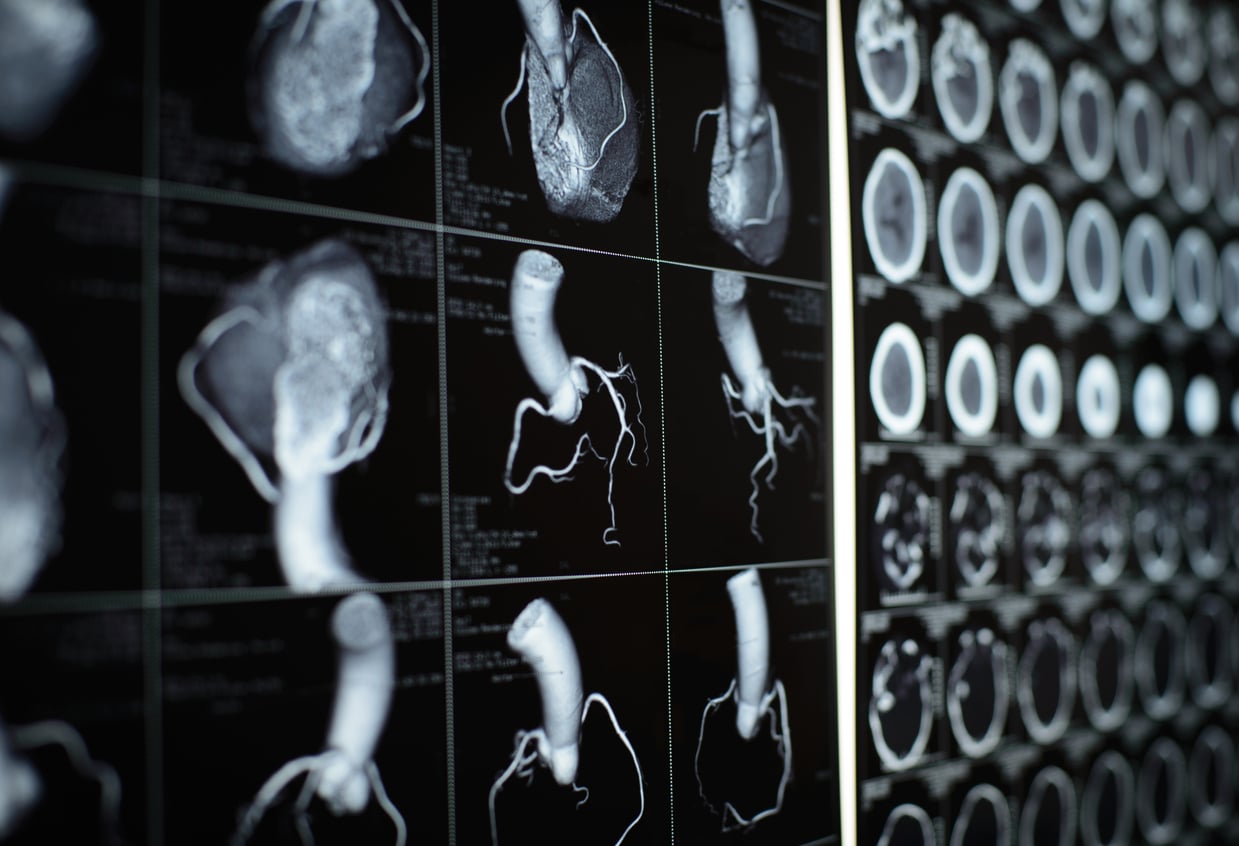Vascular Disease Treatment
Cameron Hospital is proud to offer our patients cutting-edge vascular disease treatment options. Our experienced doctors and team of healthcare professionals understand that it can be difficult to confront a diagnosis of vascular disease, but we are here with the knowledge and experience to help you manage your condition and explore comprehensive treatments. With an array of services – from lifestyle changes to therapeutic procedures – Cameron Hospital wants you to feel supported on your journey towards better health.
What is Considered a Vascular Disease?
Vascular diseases represent a diverse group of medical conditions that affect the circulatory system, which consists of blood vessels, such as arteries, veins, capillaries, and the heart.
Cardiovascular disorders include conditions such as:
- Atherosclerosis
- Aneurysms
- Peripheral artery disease
- Venous thrombosis
- Vasculitis
While each category of vascular disease exhibits distinct characteristics, they all have one common factor: the disruption of normal blood flow.
Peripheral Vascular Disease (PVD)
Peripheral vascular disease (PVD) is a common type of vascular disorder. It usually affects the arteries and veins located outside of the heart, most often in the limbs. The primary symptom of PVD is leg pain when walking, known as intermittent claudication. Other symptoms can include numbness or burning in affected areas, and skin color changes.
Carotid Artery Disease
Carotid artery disease is another type of vascular disorder that affects the two major arteries in the neck. The carotid arteries supply blood to the brain, so when they become blocked or narrowed due to plaque buildup (atherosclerosis), it can increase your risk for stroke and other serious complications.
Pulmonary Embolism
Pulmonary embolism is a blockage of the arteries in the lungs that can occur when a clot from elsewhere in the body (usually from the legs) breaks loose and travels to the lungs. Symptoms include sudden shortness of breath, chest pain, and lightheadedness or loss of consciousness. This condition can be fatal if not treated promptly.
Collagen Vascular Disease
Collagen vascular disease is a type of autoimmune disorder that affects the connective tissue in various parts of the body, such as the lungs, heart, and blood vessels. Symptoms may include skin rash, fever, joint pain, fatigue, and frequent infections.
Cerebrovascular Disease
Cerebrovascular disease is a general term that refers to any number of conditions that can affect the blood vessels and circulation in the brain, leading to stroke or other serious complications. Symptoms depend on the type of condition, but they may include weakness or numbness on one side of the body, difficulty speaking or understanding speech, and vision loss.
How is a Vascular Disease Diagnosed?
While evaluating a vascular disease, our imaging and diagnostic team employs a range of cutting-edge techniques and technologies to identify irregularities or damage within the blood vessels. Noninvasive diagnostic tests, such as ultrasound imaging, effectively capture real-time images of blood flow. Advanced methods like angiography offer a more in-depth and detailed perspective of the blood vessels by employing X-ray technology and contrast dye.
Blood Testing for Vascular Disease
The most effective way to identify and diagnose vascular disease is through blood testing. Testing for various markers and compounds in the blood can help doctors determine if there is an underlying issue with your cardiovascular system, or if something else is at play. Blood tests are typically used in conjunction with other diagnostic tests such as ultrasound, angiography, or MRI to diagnose and monitor vascular disease. The most common blood tests include a lipid profile, homocysteine levels, C-reactive protein (CRP) level, liver enzyme test, and an artery health check.
Ultrasound Imaging
Ultrasound imaging uses high-frequency sound waves to create real-time images of the circulatory system. This non-invasive procedure is an excellent way for medical professionals to observe the blood vessels and detect any abnormalities in size, shape, or movement. Ultrasound imaging is commonly used to diagnose and monitor conditions like aneurysms, heart valve disorders, or blockages in the arteries.


Vascular Disease Treatments
The range of treatments available for vascular diseases depends on the type and severity of the condition. In some cases, lifestyle changes, such as diet and exercise, can help reduce symptoms. Medication may also be prescribed to manage pain or lower blood pressure. Other times, therapeutic procedures are necessary to restore normal blood flow or repair damaged vessels.
Lifestyle Changes
Making small lifestyle changes, such as eating a healthy diet and exercising regularly, can help reduce the risk of developing vascular diseases or mitigate existing symptoms. Eating foods that are low in saturated fat and sodium while incorporating fresh fruits and vegetables can lower cholesterol levels and improve circulation. Exercising also helps to increase blood flow throughout the body, which can strengthen the cardiovascular system and reduce the risk of stroke or heart attack.
Medication Management
Medications are sometimes prescribed to improve symptoms related to vascular diseases, such as high blood pressure or cholesterol. Common medications used in combination with lifestyle modifications include statins, ACE inhibitors, and diuretics. These drugs can help lower cholesterol levels and relieve systemic inflammation associated with vascular diseases.
Therapeutic Procedures
In more serious cases, invasive procedures may be necessary to restore normal blood flow or repair damaged vessels. Endovascular surgery is a minimally invasive procedure used to remove blockages and treat aneurysms within the blood vessels. Open vessel surgery may also be employed in more severe cases to repair damage or restore normal circulation.
When to See a Cardiologist for a Vascular Disease
It is important to seek medical attention if you are experiencing any symptoms of vascular disease, including pain in the chest or leg, numbness on one side of the body, difficulty speaking or understanding speech, and vision loss. Contacting your doctor right away can help diagnose and treat the condition quickly.
Vascular Disease Treatment in Angola, Indiana
At Cameron Hospital, our vascular specialists provide comprehensive care and treatment for a wide range of vascular diseases. Our experienced cardiologists offer advanced diagnostic testing to identify any abnormalities or blockages in the blood vessels, and we use cutting-edge treatments to repair damaged vessels and restore normal circulation. We utilize the latest medical technologies and techniques to improve quality of life and reduce the risk of future complications. If you are experiencing symptoms related to vascular disease, contact us today for an appointment.

©2024 Cameron Memorial Community Hospital
416 E. Maumee Street, Angola, IN 46703
